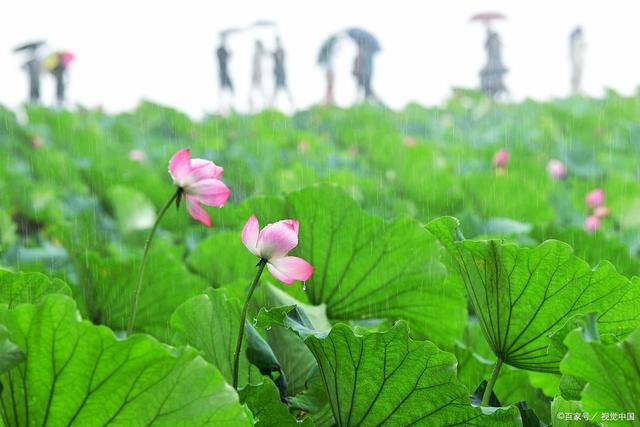Traditional Chinese medicine says: the root of all diseases is dampness.
When dampness accumulates in the body, it easily increases the risk of illness.
External dampness is usually caused by external factors, related to rainy weather and humid environments;
Internal dampness is often related to diet, liking cold drinks and indulging in raw, cold fruits, damaging the body’s yang energy.
What are the characteristics of excessive dampness in the body?
People with excessive internal dampness feel unusually fatigued after waking up in the morning, experience bloating and pain in the lower abdomen, joint soreness, as if they have not rested well all night;
The face, especially the nose, appears oily and shiny, even after wiping with water, the effect is still not obvious, indicating a heavy internal dampness, requiring timely adjustment;
People with excessive dampness may experience sticky stools that are hard to flush away in the morning;
As internal dampness continues to accumulate, it affects one’s mental state, leading to feelings of sluggishness throughout the day, loss of appetite, and various other discomforts.
The increase of internal dampness is closely related to the fruits often consumed; excessive intake of the following fruits can exacerbate dampness. Remember to control your intake.
The “dampness king” in the fruit world, should have long been blacklisted, but many people treat it as a treasure, even consuming it daily:
Watermelon
Watermelon, loved by many, especially during hot summers for its hydrating properties. While it helps in replenishing body fluids, relieving thirst, aiding in diuresis, and expelling dampness, excessive consumption can burden the body’s metabolism. It is advisable to consume watermelon in moderation for health benefits. Excessive consumption, especially of chilled watermelon in summer, can introduce coldness into the body, affecting the normal functioning of the spleen and stomach, leading to worsened internal dampness and increased risk of illness.
Dragon Fruit
Dragon fruit, sweet and convenient, is popular among those trying to lose weight. It helps in bowel movements, providing essential nutrients, and aiding in weight loss. However, being a cold food, regular consumption can aggravate internal dampness, leading to deteriorating health. It’s important to control the intake of dragon fruit, especially for those with weak spleen and stomach.
Jackfruit
Jackfruit, popular in recent years, is different from durian in taste and smell. Although it belongs to the warm-tropical fruit category, it is also considered damp-heat fruit. Excessive intake can worsen internal dampness and lead to body shape changes. For individuals prone to heavy dampness, excessive jackfruit consumption can disrupt organ functions, increase the risk of illness.
Banana
Banana, available year-round, aids in bowel movements, detoxification, and relieving constipation. However, excessive consumption exacerbates dampness, especially for individuals with heavy internal dampness. Overconsumption weakens the body, destabilizes internal conditions, and worsens dampness.
Mango
Mango, beloved by many, is sweet but cold in nature. Regular intake increases internal dampness, raising the risk of health issues. Women should limit mango consumption during menstruation to avoid disruptions. Even in hot summers, reducing mango intake is crucial to maintaining health and controlling internal dampness. Some may consider mango a treasure and consume it daily, but moderation is advised.
Consistently follow these practices to expel dampness, reduce cold, and minimize illness:
Control diet, limit intake of cold foods:
In hot summer weather, many people enjoy consuming cold foods, but these can harm stomach health, invite dampness, and damage the spleen. Avoid overindulging in cold foods to prevent stomach issues and discomfort like diarrhea, vomiting, and abdominal pain.
Avoid damp environments:
Extended stays in cool or damp places due to work can increase internal dampness, affecting normal body functions. Prolonged exposure to air-conditioned rooms can lead to dizziness, discomfort, and disrupt bodily functions. To prevent worsening internal dampness, seek outdoor activities for adequate sunlight exposure.
Regular foot soaking:
Foot soaking is beneficial for removing dampness, improving blood circulation, and eliminating toxins. Soak your feet in water at approximately 40°C for 20-30 minutes until you slightly sweat, aiding in dampness elimination.
Regular exercise:
Exercise promotes blood circulation, expels dampness, reduces stress, and encourages sweating, an effective method to expel dampness and cold. Avoid excessive exercise, opting for moderate aerobic activities to avoid joint injuries.


